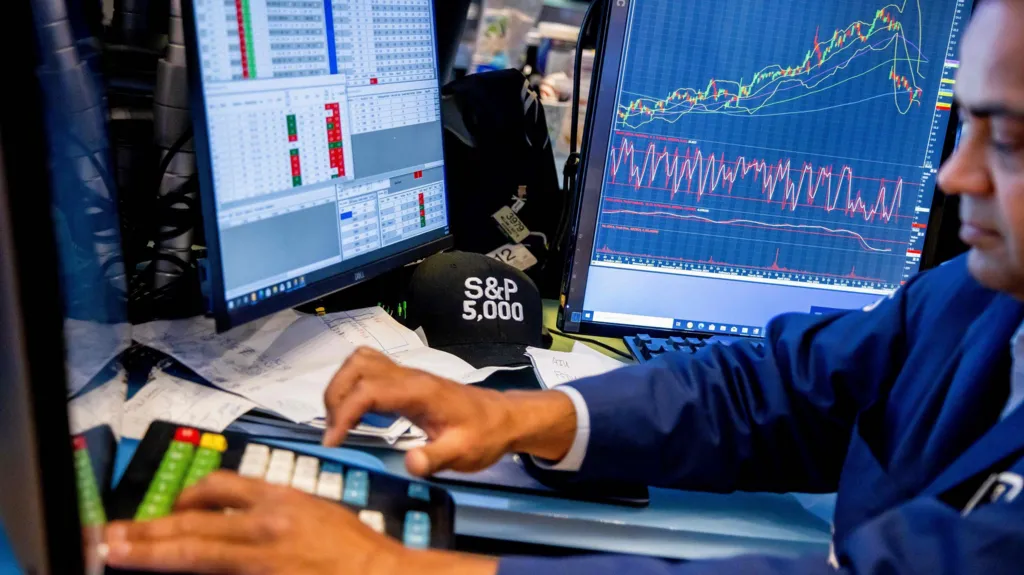US stock markets experienced a significant decline on Monday, following similar falls in Europe and Asia. The drop in the markets has raised concerns about a potential slowdown in the American economy. The technology-heavy Nasdaq index opened 6.3% lower after experiencing a sharp decline at the end of the previous week, but it managed to recover some losses throughout the day. Other major US indexes also opened significantly down, while stock markets in Europe and Asia experienced a plunge, with Japan’s Nikkei 225 falling by approximately 12.4%.
These market movements were triggered by weak jobs data in the US, which ignited worries about the world’s largest economy. In contrast to other central banks such as the Bank of England, the US Federal Reserve refrained from cutting interest rates last week, which is a typical measure to stimulate growth. This decision has added to concerns surrounding big technology companies, particularly those heavily investing in artificial intelligence (AI), as there is speculation that these companies might be overvalued and facing difficulties. For instance, chipmaker Intel announced significant layoffs and disappointing financial results, while its rival Nvidia, a manufacturer of AI chips, is rumored to be delaying its latest product launch.
At the end of the trading day in New York, the Dow Jones index, representing the 30 largest listed companies in America, was down 2.6% after reducing its losses. The tech-heavy Nasdaq index closed 3.4% lower, and the S&P 500 index was 3% down. Major tech stocks experienced a significant blow, with Nvidia dropping 6.3%, Amazon down 4.1%, and Apple down 4.8%.
In Europe, the CAC-40 in Paris trimmed earlier losses to end 1.4% lower, while Frankfurt’s DAX and the UK’s FTSE 100 lost around 2% each.
The initial trigger for the market downturn was weaker-than-expected jobs data from the US, suggesting that the country’s job growth might be coming to an end. Furthermore, it raised speculation about whether and by how much the Federal Reserve would cut interest rates. Economists are uncertain whether the jobs figures were influenced by Hurricane Beryl, a Category 5 storm that hit parts of the Gulf Coast of the United States in July, or if they indicate a broader trend of companies hiring fewer workers.
Despite the recent concerns, recent data indicated that the US economy grew at an annual rate of 2.8% in the three months leading to the end of June, which is stronger than most developed countries. Shanti Kelemen, the chief investment officer at M&G Wealth, expressed uncertainties about whether the US would enter a recession or not, as both positive and negative indicators could be identified.
The global stock market rout reflects fears of potential contagion. The decline in the Nikkei in Japan was partly driven by the strengthening of the yen against the US dollar, following the Bank of Japan’s recent interest rate hike. This has increased the cost of Japanese goods for foreign investors and buyers. In addition, inflation in Japan rose more than expected in June, while the economy contracted in the first quarter of the year.

